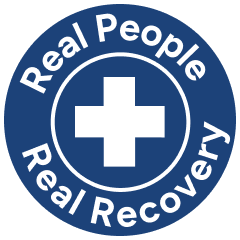Home / Drug & Alcohol Rehab Programs Across New England / Percocet Abuse: Addiction Signs & Treatment Options
Prescription narcotics are vital substances if you’re battling moderate or severe pain. Whether you’ve suffered an injury or are recuperating from a life-changing surgery, pain relievers can make a huge difference in your quality of life. But did you know that there’s a high possibility of misuse and addiction to prescription opioids? Here’s how Percocet abuse happens.
When your body gets relief after the drug stimulation, you tend to get a feel-good sensation. With time, you might develop a tolerance and need more of the drug to feel normal. Slowly, you might start abusing your prescription and developing an addiction. The dangers to that are appalling. The CDC reports show that over 800,000 people died from a drug overdose between 1999 and 2019.
Even with the frightening statistics, nothing has stopped the opioid overdose epidemic from escalating. To find out why, it’s paramount to understand the basics of drugs such as Percocet. Read on to get more insight on addiction and how to overcome it.
Percocet is a brand name for the combined medication oxycodone-acetaminophen. Oxycodone is an opioid painkiller while acetaminophen, also known as paracetamol, is a non-opioid pain reliever. Oxycodone falls in the Schedule II drugs category of the Controlled Substances Act by the Drug Enforcement Administration due to its high potential for abuse because its use is likely to lead to physical or psychological dependence. Although Percocet has acceptable medical use, Schedule II drugs are among the substances under tight control.
Opioids are highly addictive due to their tendency of making people feel relaxed and high. Per the National Institute on Drug Abuse, about 21% to 29% of people with opioid prescriptions for chronic pain misuse them. Also, around 8% to 12% of people using opioids to relieve chronic pain eventually develop an opioid use disorder. Other than the brand name Percocet, here are some other names that the drug goes by:
Doctors prescribe Percocet to treat pain. You may also experience side effects of the drug such as reduced anxiety, relaxation or increased pleasure. While some people may have a legitimate reason to want to feel relief from their discomfort, others may be seeking an escape from their daily stresses or want to experience the “high” feeling.
That’s where abuse comes in. Some individuals may sell opioid prescription medication such as Percocet to individuals who do not have a legitimate or medical reason to need its use. That can occur when someone invents symptoms to make a doctor believe that they are in real pain. Percocet abuse also occurs when people go doctor shopping, meaning that they make appointments with various doctors to get multiple drug prescriptions.
Other methods of Percocet abuse:

Another emerging trend in prescription pill abuse is the sale or sharing of drugs obtained legitimately. A National Survey on Drug Use and Health report shows that the frequent source of prescription pain reliever misuse was from a relative or friend either for free or for a fee. The statistics show that over half of Americans aged 12 and older who misused prescription painkillers got them in that manner.
Being a combination drug, Percocet can be more dangerous if you use it regularly. That’s because the higher doses of acetaminophen can be life-threatening due to the increased risk of overdose. The Food and Drug Administration attaches bold warnings to combat Percocet misuse, including use in combination with alcohol or other drugs. With continued Percocet use, there’s a high possibility of developing an addiction.
Percocet is one of the pain-relieving opioids that work by altering the brain’s chemical pathways regarding pain sensation. Since the drugs act directly on the brain, your central nervous system may slow down its functions, including heart rate, blood pressure and respiration rate. Increased use of Percocet will also hinder the activity of neurotransmitters that send pleasure signals such as dopamine. What happens is that the drug fills opioid receptors and leads to a buildup of dopamine levels in the brain. That’s where the euphoric feeling results from when you misuse drugs.
There are various ways that people take Percocet tablets, the most common being by mouth. However, others choose to crush and smoke or snort the drugs, or they might dissolve the powder in water and inject it into the bloodstream. While the crushing method causes a high effect quickly, it also comes with the increased danger of an overdose.

Abusing Percocet can make you seem like you’re intoxicated with alcohol. In addition, you might exhibit the following behavioral symptoms:
You can also develop cognitive symptoms:
When it comes to psycho-social symptoms, the following can occur:
Some other side effects that are easy to notice are the physical symptoms. These include:

When you develop a dependence on the painkiller, your brain and body become accustomed to the drug’s influence such that they fail to function without the medication’s presence. That is because your brain’s structure and functions change after you regularly abuse the drugs. Whenever you cut down drug use or try to stop using altogether, you might experience some severe side effects, otherwise known as withdrawal symptoms.
Some common withdrawal symptoms:
Withdrawal symptoms can be uncomfortable. Therefore, trying to quit the drug on your own may prove futile. You ought to get help from a qualified medical practitioner who can safely take you through the detoxification process. Some physicians utilize pharmaceuticals to manage the withdrawal symptoms and make you comfortable every step of the treatment process.
An unfortunate eventuality of Percocet abuse is an overdose. If you or your loved one misuses the drugs and exhibits the following symptoms, seek emergency medical help to avert an unfortunate outcome, such as death:
If you have an untreated mental health issue, the chances of beating Percocet abuse will improve with professional assistance. When you’re looking for an addiction treatment center, it will be best to find one that addresses multiple mental health problems. At Granite Recovery Centers, we treat co-occurring mental health issues such as:

The common signs that you’re addicted to Percocet include drug dependence, withdrawal symptoms and drug tolerance. Participating in a Percocet addiction treatment program will be worth your while because you will regain your health and learn how to lead a happy life. Otherwise, here’s what you might encounter in the long run if you remain addicted to the drug:

There are multiple addiction treatment programs available with services tailored for each person. Opioid treatment often involves medication, treatment of mental health disorders, behavioral interventions and measures to inhibit overdose. However, that’s just a scratch on the surface. Here are more of the drug addiction treatment formats and methods that we oversee.
All the above treatment programs incorporate behavioral therapy in group and individual sessions to help you gain coping skills to overcome relapse triggers. Therapy enables participants to develop self-esteem by channeling out destructive thoughts.
Percocet addiction treatment is made easier with counseling from the trained professionals at Granite Recovery Centers. In addition to individual and group counseling, family sessions are also available since addiction affects an individual and the people surrounding them.
Regardless of the stage of recovery you are in, you can be sure you’re dealing with a seasoned team at Granite Recovery Centers. Our well-trained medical professionals will help you choose the right program for your specific needs.

Doctors sometimes prescribe medication to treat Percocet addiction. You may be wondering how a drug helps treat another drug problem. What happens is that medication manages the withdrawal symptoms of the drug you abused and mitigates cravings.
Medical detox with professional monitoring is always recommendable for a safe withdrawal process. Your physician will be available to monitor your mental and physical health while prioritizing your safety. The medications that doctors use for detoxification fall into these five major categories:
During detoxification, your doctor can replace Percocet with an agonist drug to manage withdrawal symptoms. Since treatment agonists usually have a long half-life, they will stay in your system for longer and hold off your withdrawal symptoms longer. In addition, opioid agonists block the receptor sites from receiving more of the drug. While the drugs may bring about withdrawal suddenly, they’re likely to deter you from relapse. Granite Recovery Centers provides medical detoxification for people who do not need immediate medical intervention, are not a danger to themselves, and are capable of self-evacuation in the event of an emergency.
There is a high tendency to abuse Percocet due to the euphoric effect it generates. An addiction to the drug can be fatal due to the possibility of an overdose and even death. With the proper Percocet addiction treatment, you will be able to get back to your everyday life and have additional tools to help you deal with triggers.
Granite Recovery Centers is just a phone call away. Request our brochure or contact us by phone, and we will guide you through your recovery journey.

If you want to visit one of our New England drug rehab centers, please contact us at Granite Recovery Centers. Our experts will work with you to find a high-quality treatment option that meets your needs. We strive to provide a holistic level of treatment with evidence-based care, giving you the help necessary to regain your sobriety for good.

| Cookie | Duration | Description |
|---|---|---|
| __cf_bm | 1 hour | This cookie, set by Cloudflare, is used to support Cloudflare Bot Management. |
| .AspNetCore.Cookies | 11 months | This cookie is installed by BayMark Health Services, Inc. The cookie is used to maintain persistence with ChatGPT sessions. |
| .AspNetCore.CookiesC1 | 11 months | This cookie is installed by BayMark Health Services, Inc. The cookie is used to maintain persistence with ChatGPT sessions. |
| .AspNetCore.CookiesC2 | 11 months | This cookie is installed by BayMark Health Services, Inc. The cookie is used to maintain persistence with ChatGPT sessions. |
| .AspNetCore.CookiesC2 | 11 months | This cookie is installed by BayMark Health Services, Inc. The cookie is used to maintain persistence with ChatGPT sessions. |
| .AspNetCore.CookiesC3 | 11 months | This cookie is installed by BayMark Health Services, Inc. The cookie is used to maintain persistence with ChatGPT sessions. |
| .AspNetCore.CookiesC3 | 11 months | This cookie is installed by BayMark Health Services, Inc. The cookie is used to maintain persistence with ChatGPT sessions. |
| AspNetCore.Cookies | 11 months | This cookie is installed by BayMark Health Services, Inc. The cookie is used to maintain persistence with ChatGPT sessions. |
| AspNetCore.CookiesC1 | 11 months | This cookie is installed by BayMark Health Services, Inc. The cookie is used to maintain persistence with ChatGPT sessions. |
| cookielawinfo-checkbox-advertisement | 1 year | Set by the GDPR Cookie Consent plugin, this cookie records the user consent for the cookies in the "Advertisement" category. |
| cookielawinfo-checkbox-analytics | 11 months | This cookie is set by GDPR Cookie Consent plugin. The cookie is used to store the user consent for the cookies in the category "Analytics". |
| cookielawinfo-checkbox-functional | 11 months | The cookie is set by GDPR cookie consent to record the user consent for the cookies in the category "Functional". |
| cookielawinfo-checkbox-necessary | 11 months | This cookie is set by GDPR Cookie Consent plugin. The cookies is used to store the user consent for the cookies in the category "Necessary". |
| cookielawinfo-checkbox-others | 11 months | This cookie is set by GDPR Cookie Consent plugin. The cookie is used to store the user consent for the cookies in the category "Other. |
| cookielawinfo-checkbox-performance | 11 months | This cookie is set by GDPR Cookie Consent plugin. The cookie is used to store the user consent for the cookies in the category "Performance". |
| CookieLawInfoConsent | 1 year | CookieYes sets this cookie to record the default button state of the corresponding category and the status of CCPA. It works only in coordination with the primary cookie. |
| elementor | never | The website's WordPress theme uses this cookie. It allows the website owner to implement or change the website's content in real-time. |
| viewed_cookie_policy | 11 months | The cookie is set by the GDPR Cookie Consent plugin and is used to store whether or not user has consented to the use of cookies. It does not store any personal data. |
| wpEmojiSettingsSupports | session | WordPress sets this cookie when a user interacts with emojis on a WordPress site. It helps determine if the user's browser can display emojis properly. |
| Cookie | Duration | Description |
|---|---|---|
| yt-player-bandwidth | never | The yt-player-bandwidth cookie is used to store the user's video player preferences and settings, particularly related to bandwidth and streaming quality on YouTube. |
| yt-player-headers-readable | never | The yt-player-headers-readable cookie is used by YouTube to store user preferences related to video playback and interface, enhancing the user's viewing experience. |
| yt-remote-cast-available | session | The yt-remote-cast-available cookie is used to store the user's preferences regarding whether casting is available on their YouTube video player. |
| yt-remote-cast-installed | session | The yt-remote-cast-installed cookie is used to store the user's video player preferences using embedded YouTube video. |
| yt-remote-connected-devices | never | YouTube sets this cookie to store the user's video preferences using embedded YouTube videos. |
| yt-remote-device-id | never | YouTube sets this cookie to store the user's video preferences using embedded YouTube videos. |
| yt-remote-fast-check-period | session | The yt-remote-fast-check-period cookie is used by YouTube to store the user's video player preferences for embedded YouTube videos. |
| yt-remote-session-app | session | The yt-remote-session-app cookie is used by YouTube to store user preferences and information about the interface of the embedded YouTube video player. |
| yt-remote-session-name | session | The yt-remote-session-name cookie is used by YouTube to store the user's video player preferences using embedded YouTube video. |
| ytidb::LAST_RESULT_ENTRY_KEY | never | The cookie ytidb::LAST_RESULT_ENTRY_KEY is used by YouTube to store the last search result entry that was clicked by the user. This information is used to improve the user experience by providing more relevant search results in the future. |
| Cookie | Duration | Description |
|---|---|---|
| _uetsid | 1 day | Bing Ads sets this cookie to engage with a user that has previously visited the website. |
| _uetvid | 1 year 24 days | Bing Ads sets this cookie to engage with a user that has previously visited the website. |
| Cookie | Duration | Description |
|---|---|---|
| _fbp | 3 months | Facebook sets this cookie to display advertisements when either on Facebook or on a digital platform powered by Facebook advertising after visiting the website. |
| _ga | 1 year 1 month 4 days | Google Analytics sets this cookie to calculate visitor, session and campaign data and track site usage for the site's analytics report. The cookie stores information anonymously and assigns a randomly generated number to recognise unique visitors. |
| _ga_* | 1 year 1 month 4 days | Google Analytics sets this cookie to store and count page views. |
| _gat_UA-* | 1 minute | Google Analytics sets this cookie for user behaviour tracking. |
| _gcl_au | 3 months | Google Tag Manager sets the cookie to experiment advertisement efficiency of websites using their services. |
| _gid | 1 day | Google Analytics sets this cookie to store information on how visitors use a website while also creating an analytics report of the website's performance. Some of the collected data includes the number of visitors, their source, and the pages they visit anonymously. |
| _hjSession_* | 1 hour | Hotjar sets this cookie to ensure data from subsequent visits to the same site is attributed to the same user ID, which persists in the Hotjar User ID, which is unique to that site. |
| _hjSessionUser_* | 1 year | Hotjar sets this cookie to ensure data from subsequent visits to the same site is attributed to the same user ID, which persists in the Hotjar User ID, which is unique to that site. |
| _hjTLDTest | session | To determine the most generic cookie path that has to be used instead of the page hostname, Hotjar sets the _hjTLDTest cookie to store different URL substring alternatives until it fails. |
| Cookie | Duration | Description |
|---|---|---|
| __ctmid | 1 month | CallTrackingMetrics sets this cookie to determine the advertising channel that led a visitor to the website and also show the tracking phone number that corresponds to that channel. |
| fr | 3 months | Facebook sets this cookie to show relevant advertisements by tracking user behaviour across the web, on sites with Facebook pixel or Facebook social plugin. |
| MUID | 1 year 24 days | Bing sets this cookie to recognise unique web browsers visiting Microsoft sites. This cookie is used for advertising, site analytics, and other operations. |
| test_cookie | 15 minutes | doubleclick.net sets this cookie to determine if the user's browser supports cookies. |
| VISITOR_INFO1_LIVE | 6 months | YouTube sets this cookie to measure bandwidth, determining whether the user gets the new or old player interface. |
| VISITOR_PRIVACY_METADATA | 6 months | YouTube sets this cookie to store the user's cookie consent state for the current domain. |
| YSC | session | Youtube sets this cookie to track the views of embedded videos on Youtube pages. |
| yt.innertube::nextId | never | YouTube sets this cookie to register a unique ID to store data on what videos from YouTube the user has seen. |
| yt.innertube::requests | never | YouTube sets this cookie to register a unique ID to store data on what videos from YouTube the user has seen. |
| Cookie | Duration | Description |
|---|---|---|
| ct213024 | session | Description is currently not available. |
| ENTERPRISE_SESSION | 7 days | Description is currently not available. |
| guest | 1 month | No description available. |
| JOTFORM_SESSION | 1 month | No description available. |
| MSPTC | 1 year 24 days | Description is currently not available. |
| userReferer | 1 month | No description available. |